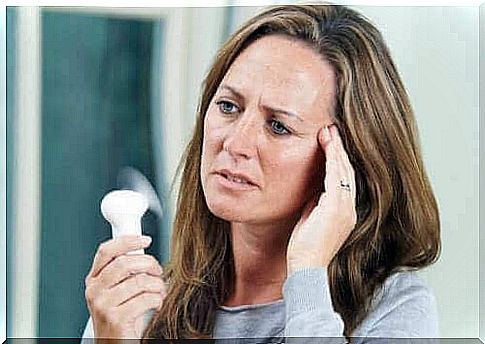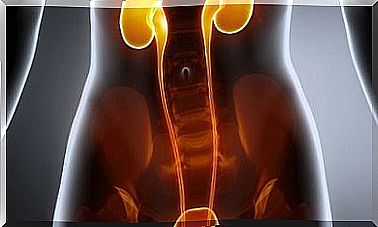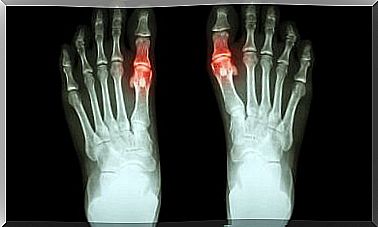Early Menopause Increases The Risk Of Dementia

Did you know that early menopause can be linked to dementia? In this article you can read why and how you might be able to prevent it.
The risk of dementia has always been associated with degenerative disorders, infectious diseases or head injuries. But now early menopause has joined this group.
Many women fear menopause. This is not just because it marks the end of their opportunity to have children. But also because of the consequences of this stage, such as the risk of osteoporosis.
Usually this stage begins at the age of 45 years. But in some cases, it starts earlier.
Premature or early menopause
Premature or early menopause occurs before the age of 40. This can be due to various factors such as:
- Family history. If someone in your family has experienced an early menopause, it is much more likely to happen to you as well.
- Cancer treatment. Getting chemotherapy for cancer, especially in the pelvic area, can cause earlier menopause.
- Autoimmune disorders. Diseases of the thyroid gland are also associated with an accelerated menopause.
When menopause occurs, the body’s estrogen levels fall. This gives the typical symptoms for this stage, such as problems with the bones. But women can also experience high blood pressure and other problems, as one has been able to read in recent articles.

The risk of dementia and menopause
But what is the relationship between early menopause and the risk of dementia?
Several studies suggest that the risk lies in the lower estrogen level. Because of this, the brain’s estrogen receptors disappear and the risk of dementia increases.
Low estrogen levels are the cause of all the symptoms we associate with menopause and the underlying problems. For this reason, experts are researching ways to prevent this.
Discover also: Diet for Menopausal Women: You Need to Know
Intake of estrogen
Researchers interested in this problem for women who are experiencing an early menopause believe that it may be beneficial to take estrogen. It is also called hormone therapy.
This type of therapy is not only used to prevent all the unpleasant symptoms that are associated with this stage of life, such as hot flashes, night sweats and vaginal dryness. But also to counteract the risk of dementia. Estrogen is usually taken in the form of birth control pills, which relieve the symptoms and reduce the woman’s risk of dementia.
However, you should let your doctor decide if this is a good treatment for you and how to take it.

Taking estrogen in pill form can reduce the symptoms at an early onset of menopause.
The risk of dementia in early menopause
The best thing about starting this hormone therapy at an early menopause is that it may reduce the risk of a disease that is difficult to diagnose early enough to be stopped.
In fact, dementia is a disease that develops gradually. It is thus a degenerative disorder, which usually only goes one way. But with the right treatment, one can delay the process, thus improving the patient’s quality of life,
Also read: 7 benefits of maca root for women you should know about
The vulnerable brain
As you can see, the brain is extremely vulnerable. Menopause, a condition that many believe only causes hot flashes and mood swings, actually causes many more changes.
Your body and your health change when you reach menopause. Your bones become weaker and you have a higher risk of dementia, especially if you come early in menopause.
It is therefore important that you have a doctor that you truly trust. You can talk to your doctor about the possibility of hormone therapy. It can make a big difference at this stage in life.
Conclusion
We hope this article has helped you understand that there are ways to counteract this type of degenerative disease. Although early menopause does not always lead to dementia, it does increase the risk.









